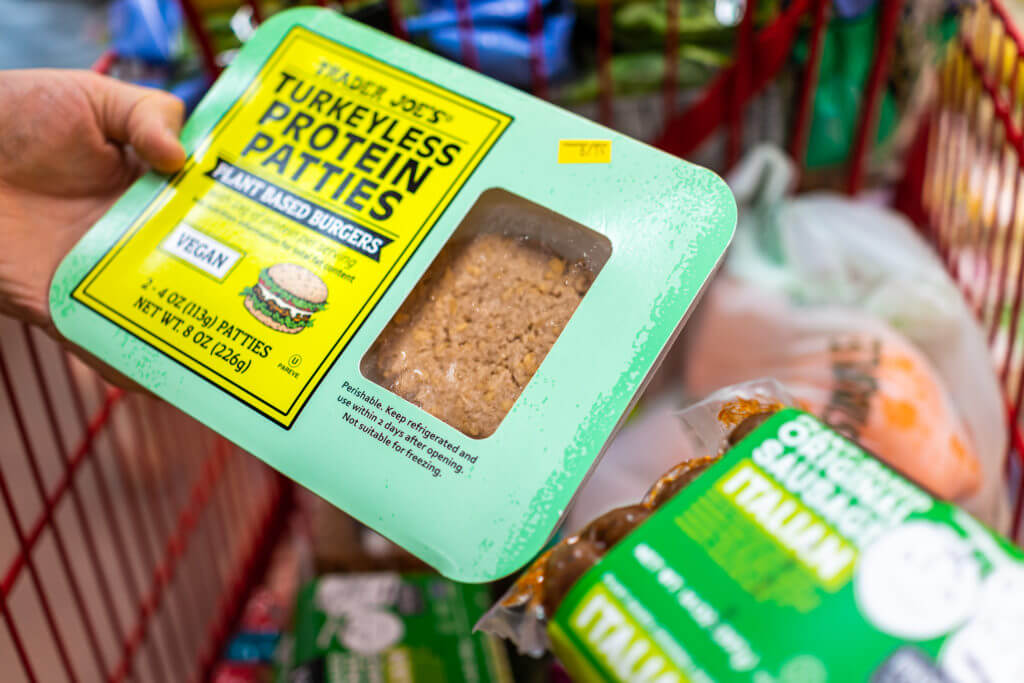NEW YORK — Plant-based foods are more appealing when people don’t label them as “vegan,” a new study reveals. Study author Patrycja Sleboda from Baruch College and a team from the University of Southern California found that red meat enthusiasts are more likely to choose non-meat and dairy-free products if they are not associated with the word vegan.
In an experiment, a group of volunteers received a food gift basket. When items were labeled “vegan,” only 20 percent of the participants chose them. However, when the same basket was labeled “healthy and sustainable,” 44 percent selected those foods.
Researchers say this shift in preferences aligns with the growing interest in vegan diets, driven by research indicating that reducing meat and dairy intake and increasing fruit and vegetable consumption can lower the risk of cardiovascular diseases, Type 2 diabetes, and cancer. Diets with less meat and dairy are also more environmentally sustainable, having a smaller carbon footprint.

The team aimed to explore how different labels, such as “vegan,” “plant-based,” “healthy,” and “sustainable,” affect food choices. In the study, presented at the Society for Risk Analysis 2023 Annual Conference, participants were offered a choice between two food gift baskets, one without meat and dairy and another with these items. They were randomly assigned one of the five labels for the meat and dairy-free basket.
The findings revealed that baskets without meat and dairy were less likely to be chosen when labeled based on their content (such as “vegan” or “plant-based”) compared to their benefits (“healthy,” “sustainable,” or both). Only 20 percent chose the “vegan” labeled basket, while 27 percent opted for the “plant-based” one. In contrast, 42 percent selected the basket labeled “healthy,” 43 percent for “sustainable,” and 44 percent for “healthy and sustainable.”
The effect of labeling was particularly strong among red meat eaters and consistent across socio-demographic groups. The researchers conclude that altering labels can be a low-cost, scalable intervention to promote healthier and more environmentally sustainable food choices.
You might also be interested in:
- Fermented onions could bring the meaty flavor back to plant-based meat alternatives
- Can ‘masculine marketing’ boost men’s interest in vegan food?
- 3 Nutrients Vegans May Be Deficient In, According To A Dietitian
South West News Service writer Isobel Williams contributed to this report.

